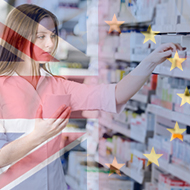
VMD has enhanced its emergency response plan to address supply issue concerns
The Veterinary Medicines Directorate and NOAH have confirmed that all veterinary medicines will continue to be available after Brexit and can remain in their existing packaging.
A joint statement reads: ‘The Veterinary Medicines Directorate (VMD) has well-established mechanisms for dealing with supply issues that arise from time-to-time and works closely with the National Office of Animal Health (NOAH) and its memberships to inform robust intelligence-led warning systems to detect potential problems at the earliest point possible.
'In order to address supply issue concerns, the VMD has enhanced its emergency response plan to support the continued supply of veterinary medicines – whatever the cause. The plan includes several levels of response and cuts across government as necessary, depending on the severity of the issue, to form a comprehensive resolution.’
The statement adds that veterinary medicines manufacturers have prepared by considering alternative logistics options, establishing appropriate stock levels and working to see that all delivery partners are ready to meet the new customs and border requirements.
The statement continues: ‘We encourage vets to continue with normal ordering patterns to maintain appropriate and proportionate stocks of veterinary medicines. We would advise animal owners to heed the advice of the veterinary profession: to discuss the timing of any vaccinations with their vet and urge pet owners whose animals are undergoing long term treatment to seek repeat prescriptions in good time from their veterinary practice.’



 The latest
The latest